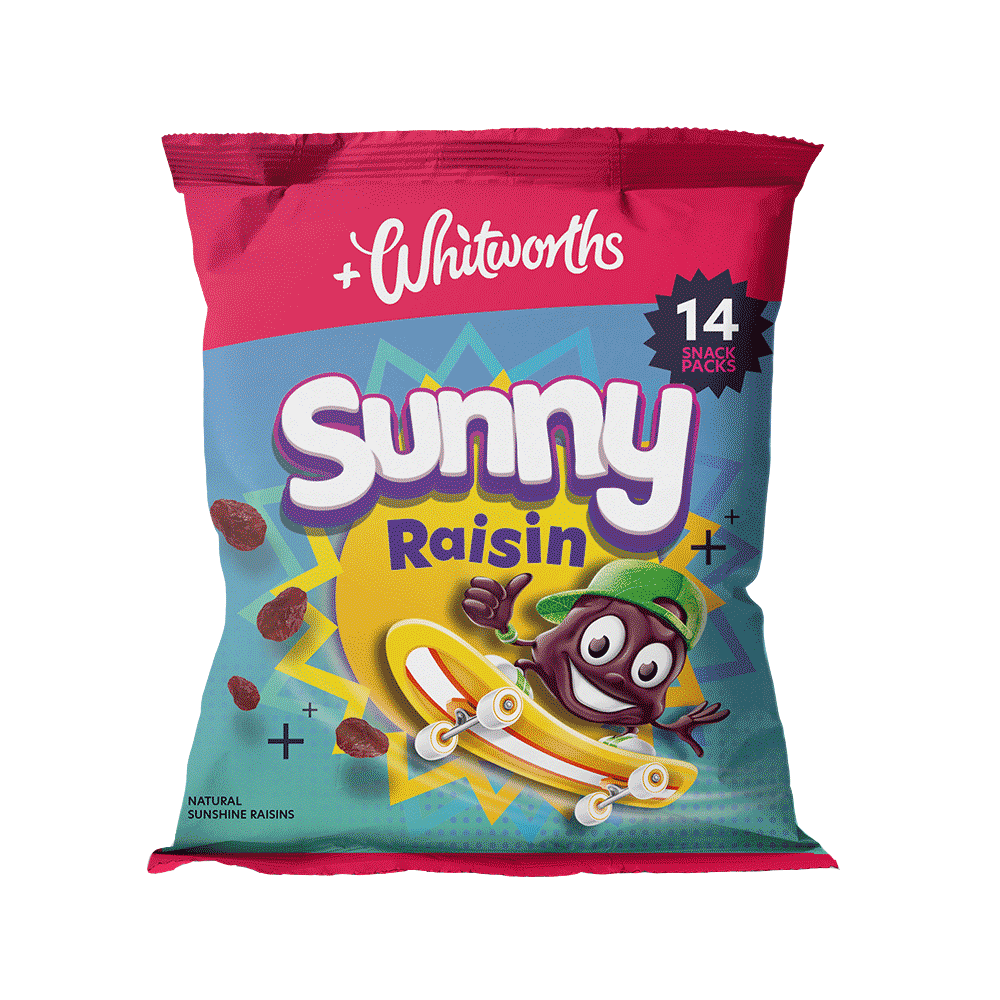Modern Slavery Statement
(SEPTEMBER 2023)
Introduction
Here at Whitworth’s Ltd we understand and acknowledge the responsibilities we have in relation to the Modern Slavery Act 2015 (Act). We continue to work to strengthen efforts to identify, prevent, mitigate, and address potential risks of modern slavery and human trafficking within our organisation and with the suppliers of goods and services to us, in line with our values, policies and regulations. We continue to review our practices to combat modern-day slavery and human trafficking from within our business and supply chains.
We will not associate with any business that is knowingly in breach of the Act and its expectations or which we know is engaged in slavery or human trafficking.
Organisation’s structure
Whitworths are a privately-owned business that mixes, packs, processes dried fruit, nuts, seeds, beans, pulses and cereals to our customers. Our supply chain includes relationships with external business for the sourcing of products and several of these suppliers are based outside of the United Kingdom. Our 2022 financial year ran from Sunday 02/01/22 to Saturday 31/12/22.
The site in Irthlingborough, where the head offices are based, consists of 4 manufacturing plants (Fruit processing plant, Cereal processing, Nut processing and Peanut), the site also houses a Heat Treatment area and 7 warehouses over a 22-acre property. Our labour base consists of permanent employees supplemented with local agency workers, sourced through reputable recruitment agencies, which enable the business flexibility and the ability to respond to short term changes in demand. All appropriate right to work checks are conducted throughout our labour base. We employ approximately 358 permanent employees at our site in Irthlingborough.
Due to the nature of our products we supply, we work with strategic supply partners globally.
our commitment and policies
Our culture, the way we do things around here, reflects our brand values and reflects on our brand. Virtue, our Ethical Trading Policy summarises our commitments as a socially responsible business, amalgamating a number of policies and outlines our approach to How we do business; Social Accountability; Human Rights Due Diligence and Modern Slavery and Human Trafficking, Anti-harassment and Bullying Policy; Anti-corruption and Bribery Policy. Virtue outlines responsibilities for key ethical areas across our Board members.
Outside of Virtue, we have several policies that reference our ethical stance, these include Responsible Sourcing; Children and Young Workers Policy; Use of Agency Policy, Responsible Recruitment Policy and our hybrid working policy – Working Together, Working Differently Policy.
We encourage an open and honest culture in our business supported by the appropriate policies (Grievance Policy and Whistleblowing Policy). These are communicated at Induction and at additional timepoints, via communication boards and other communication methods.
Virtue outlines standards which reflect our commitment to acting morally, ethically and with integrity in all our business relationships and to implementing and enforcing effective systems and controls to ensure, as far as we can, that slavery and / or human trafficking is not taking place anywhere in our supply chain. A copy of our policy is available on request from HR@whitworths.co.uk
We will ensure compliance with the Act within our company but also expect our suppliers to ensure they have standards in place that ensure there is no modern slavery in our supply chains.
We will encourage our suppliers with a total turnover in excess £36 million to also release a modern slavery statement of their own and publish on their relevant websites where applicable.
As part of our due diligence processes into slavery and human trafficking, we abide by the ETI (Ethical Trading Industry) Base Code and have SEDEX Membership. We are regularly audited using the SMETA methodology which covers SEDEX’s 4 pillars of labour, health and safety, environment and business ethics. We share this information on the SEDEX platform with our customers. Ethical audits of this nature will cover ‘worker voice interviews’ held with no management or supervision interaction to ensure openness and honesty.
We have a supply approval process incorporating a review of controls undertaken by our suppliers which includes produce sourced from territories outside the UK and EU which are potentially more at risk of slavery and human trafficking issues. The level of management control will be continually monitored. We also carry out a self-assessment of risk. We request all suppliers are members of SEDEX and link with us on the platform, in the case of suppliers based in “high risk” countries this is a condition of supply.
Our Responsible Sourcing Policy, owned by our Director of Commodities, applies to all our operations and those in our supply chain and outlines our stance on human rights due diligence and modern slavery, developed in conjunction with Procurement, HR, and our Technical team. Our Supplier Ethical Code is sent to all our future suppliers at supplier approval stage, clearly outlining expectations from all suppliers.
Our policies are always accessible on the intranet and on our shared drives, or by making a request to the HR Team. They are shared with employees as they join our business. Some of our policies can be found attached to employee communication boards across our site. This Modern Slavery Statement is published on our website.
GOVERNANCE
Our Directors and Senior Management Team take responsibility for implementing this policy statement, its objectives and aims and will provide appropriate resources (training etc) and investment.
RAISING AWARENESS AND Training
We will continue to invest in training and resources, as required, to raise awareness of slavery and trafficking, and of our policies and procedures. We have an established Induction programme which covers an awareness of Modern Slavery, the delivery being relevant to the audience. This has been shared with our Labour Providers.
In 2023, we aim to continue to develop the skills and knowledge of key frontline managers across our business.
Measuring effectiveness
This policy has been reviewed and the actions referred to put in place for our 2022 financial year ensuring that we have continued to deliver on our commitment.
- We place value on our employee voice communications ensuring all employees whether directly employed or via our agencies have opportunity to raise concerns confidentially, through various mechanisms we have in place.
- Extending the Employee Forum membership to ensure as many teams as possible across our business are represented.
- Continuing to raise awareness of our Whistleblowing line which goes direct to our CEO and HRD, through poster publication, email promotion and messages on payslips. Whistleblowing is included in our induction. In 2022, no concerns were raised in relation to Modern Slavery.
- Mechanisms to identify risks and issue – regular use of the SEDEX Self-Assessment Questionnaire and follow up, key learnings from our customer audits.
- Employee awareness key performance indicators – through an employee survey. In 2022, this was implemented in conjunction with one of our key customers.
- Recruitment and induction process; includes questions to identify potential issues; modern slavery statements on all applications with key telephone numbers to call; inclusion within induction; bank account and home address checks – key performance indicators.
- Ensuring all employees have easy access to all relevant policies
- Annual review of our policy and publication within 6 months of the financial year end.
- Extending Modern Slavery training through to a further management tier within our business.
We will continue to explore ways to measure the effectiveness of our approach. We will measure our performance based on several indictors, but specifically:
- Reported incidences of modern slavery in our supply chains.
- Third party ethical audits undertaken at our site in Irthlingborough.
- Colleague and Suppliers who have undertaken modern slavery awareness training.
- Improvement actions undertaken in our supply chain.
Our supply chains and due diligence
All our raw material, packaging and indirect suppliers go through an approval process prior to commencement of supply. In addition to questionnaires and audits, we require all our suppliers to register with SEDEX, and share information on their human rights, environmental, and business ethics policies and practices. We use this information to stratify the risk associated with the supplier, and to manage the supply relationship appropriately.
Our approval of suppliers is risk based and focuses on three areas. Firstly, we focus on country, identifying higher risk countries. We also risk assess specific raw material supply chains, identifying those where particular concerns exist, such as those for Cashew Nuts, Hazelnuts, and Coconut. Thirdly, we assess the individual suppliers within these supply chains and countries. We request all suppliers in high-risk countries to be SMETA audited on an annual basis.
We use a number of tools to mitigate risk, and to ensure modern slavery is not practiced. This may include setting specific criteria for sites we work with, refusing to work with factories that outsource certain process steps, refusing to source some products from countries that are deemed to present an unmanageable risk, and to use Direct Worker Communication to better understand workers experience of our suppliers. Audit frequency is also established according to the risk rating, the higher the risk the higher the frequency.
Whitworths approach to due diligence within our supply chain is guided by our Responsible Sourcing Policy. A copy of which is issued to all prospective suppliers as part of a Supplier Introduction Pack and ways of working with our business. Whilst we are mindful of the limitations of audits, our audit programme is a critical enabler in the discovery and management of modern slavery risks throughout our supply chain.
We are active members of SEDEX (Supplier Ethical Data Exchange) and continue to use their system and tools to map our supply chains, assess key areas of risk and monitor improvement activity across our supply chain. We review all SMETA audits carried out at our suppliers’ sites, and ensure corrective actions, and where appropriate remediations are carried out. Suppliers with critical non-compliances are reviewed, and their progress towards full compliance supported. Delisting is retained as a last resort option for suppliers who fail to resolve critical non-compliances.
As a supplier to our customers, we are audited against their individual Codes of Practice, of which ethical standards form part of the audit scope. It is a requirement that we be ethically compliant to gain approval as a supplier. We are also third party audited by accreditation bodies and ethical standards are part of these audit scopes. Internally, audits are carried out against customer and accreditation bodies’ codes of practice and standards as a means of continuous improvement.
Our Labour Providers, with whom we have established regular meetings with, have a continued focus on modern slavery and we work with them to continue to identify and assess areas of risk and areas for improvement. How we work with our agency partners, our expectations and how we audit them is detailed in our Use of Agency Policy.
We incorporate peer learning e.g., through the Ethical Supplier Exchange to help us to continuously improve our approach.
Progress on our performance to date
We have recognised that supply of cashew nuts carries a specific level of risk, due to the nature of the product, structural issues with the industry, and, over time, a lack of care in sourcing. Of particular concern has been the widespread practice of outsourcing many of the more dangerous and labour-intensive processes to third parties, meaning our control over standards in these areas in the past has been greatly diminished.
One of our key actions was to visit our supply base in Vietnam, and having done so, we identified some new suppliers with controls around processing that indicated they would strengthen our controls across the supply chain, and identified others where controls were less well developed than we had expected, and where we identified significant risks. We have therefore onboarded new suppliers as a result of this visit and have made the decision to no longer trade with an existing supplier. In addition, we have identified some potential advantages to our ethical sourcing position by working with other origins and are developing this opportunity accordingly.
Furthermore, through the review of SMETA audits we have identified issues of concern within the sourcing of tropical dried fruits and are working with suppliers to remediate issues, and ensure policies and processes are put in place to mediate and remove risks where we can.
With such an extensive and complex supply chain, working with your suppliers, continually assessing and reassessing, ensuring appropriate controls in place will continue to be our focus.
Modern slavery statement
This statement has been approved by our Management Board and will be reviewed annually and published within 6 months of the financial year end. This statement is made pursuant to section 54(1) of the Modern Slavery Act 2015 and constitutes our Modern Slavery and Human Trafficking Statement for the financial year ending 31 December 2022.
Signed on behalf of the Management Board by Mark Fairweather, CEO.
September 2023







